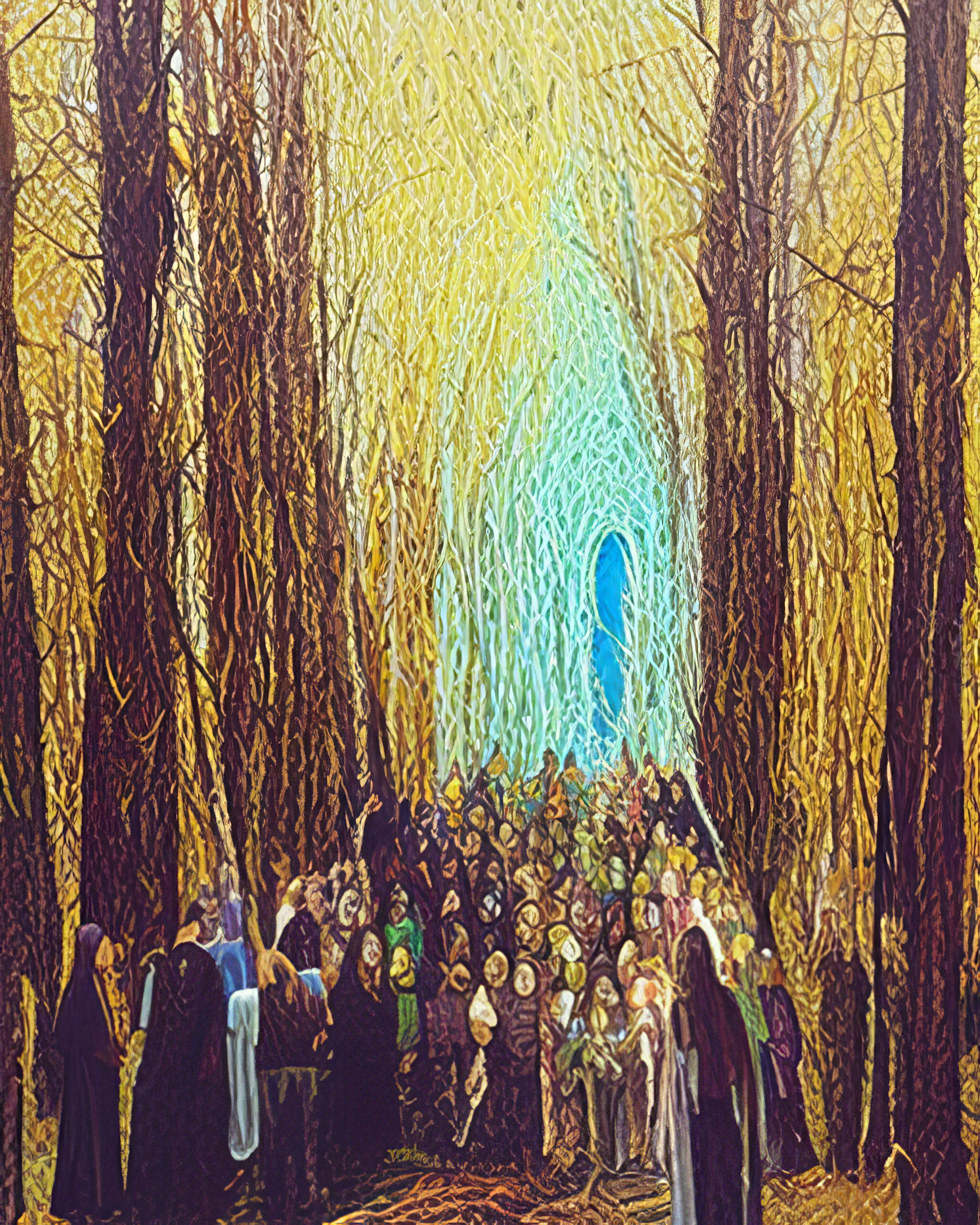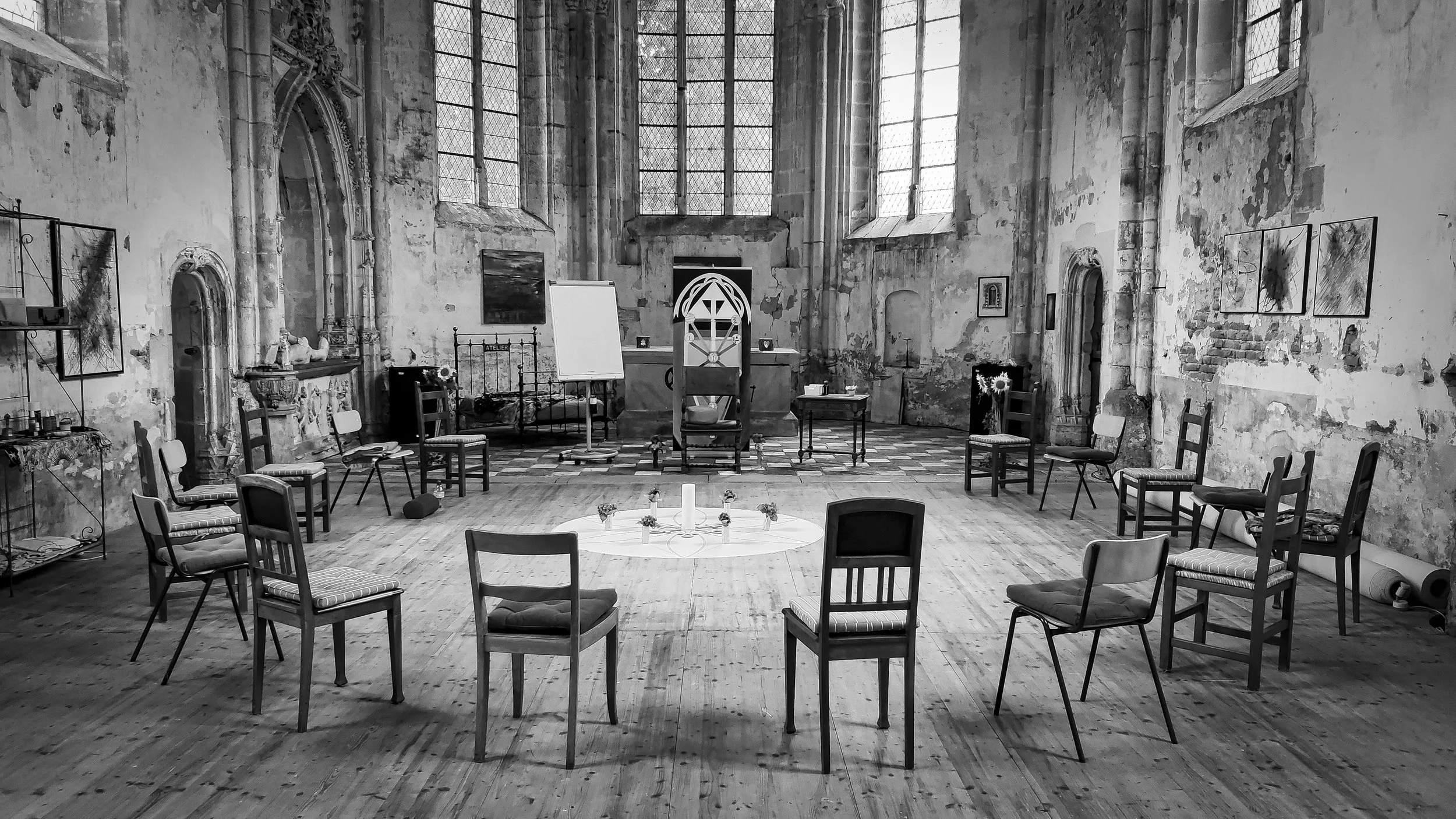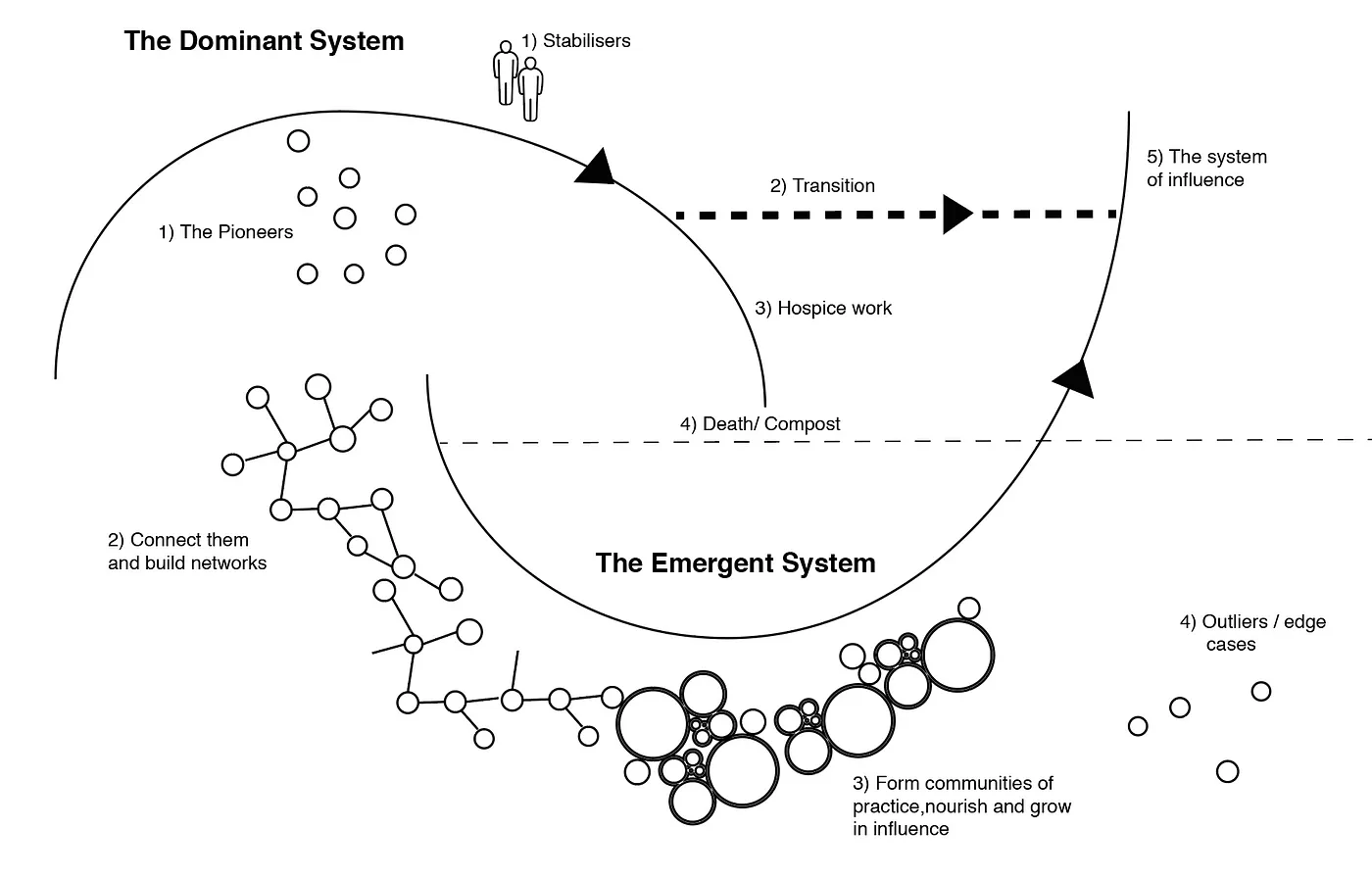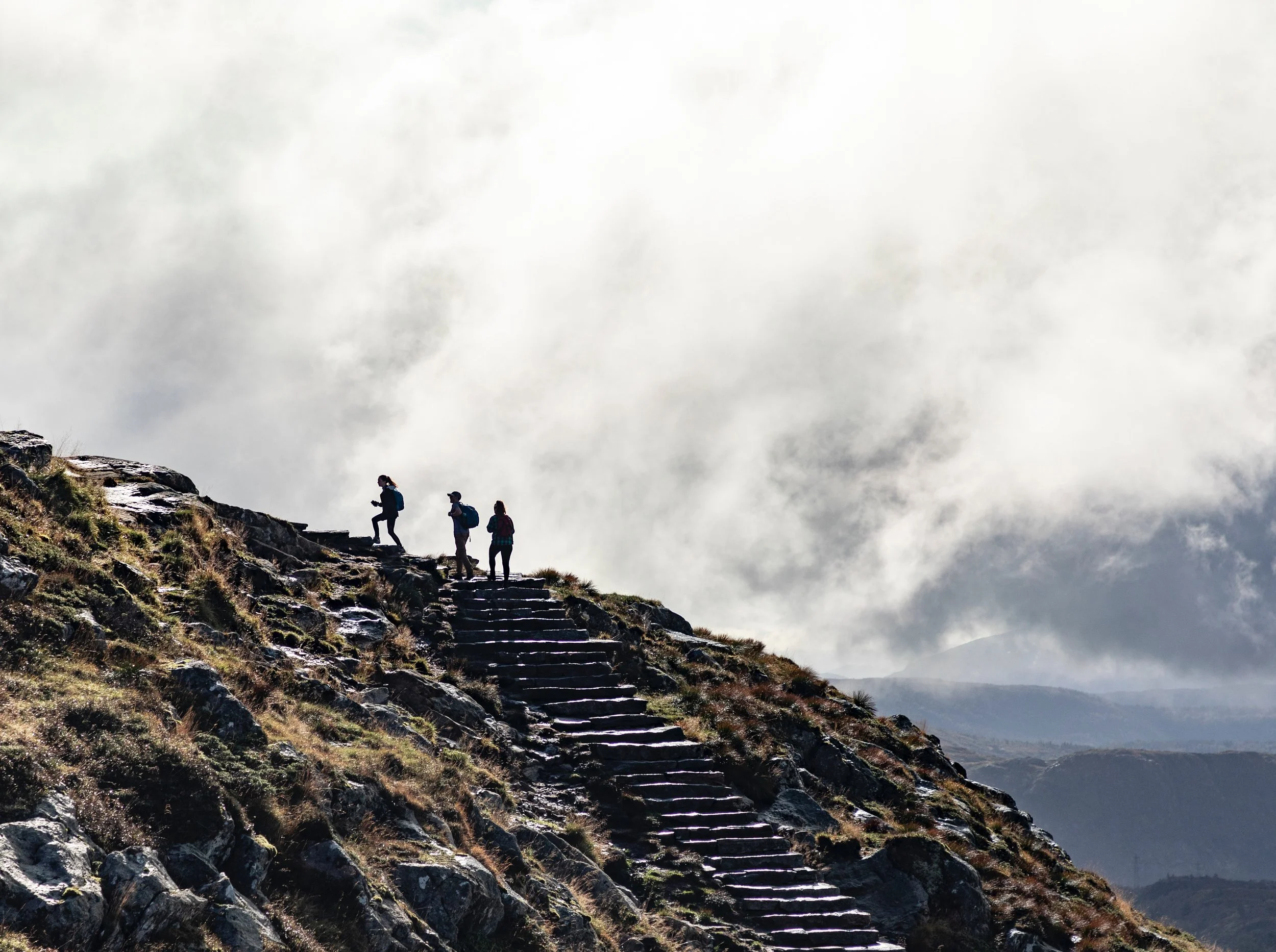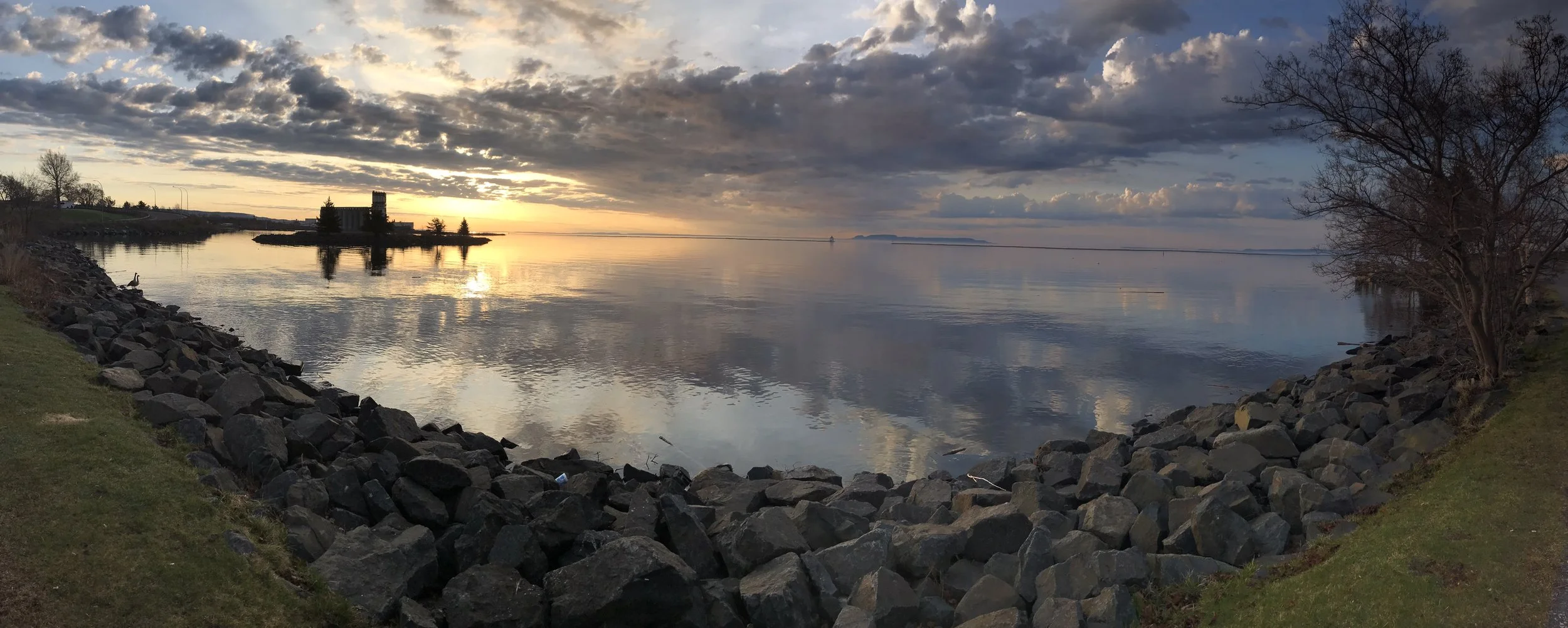Co-Creating Communities of Deep Belonging
Why We Need New Spiritual Community
Practicing Community – Part Twenty
“The Journey of Belonging”
“Human rights are composed out of three forces: Being, Becoming, and Belonging”
If we really wanted to try, we could perhaps boil down the purpose of spirituality to these three fundamental movements: to be, to become, and to belong.
To be in our genuine identity, remembering who we truly are and finding the peace of resting in our fundamental being.
To become who we were meant to be, always evolving and growing into more of what is ours to bring to the world.
And to find a true sense of belonging, connecting deeply with others who resonate with and reflect who we are together.
All of these are not static and singular states but interweaving processes that we are constantly undergoing in our personal expression and in our collective identities.
These three fundamental powers are ultimately experienced in the Three Faces of God, being in flow from the Inner Face of our divine identity, continually becoming more united into the Infinite Face ever-beyond, and belonging in love with the Intimate Face in relational communion.
In this day and age full of fragmentation and individualism, finding a deep sense of belonging has become more and more difficult. As many of the traditional structures of institutional religion continue to decline and fail, many are left without a place of gathering that remains meaningful. In a perhaps related movement, much of spirituality has gravitated away from the relational divine connection, emphasizing the universal and the interior while neglecting the importance of the personal.
The power of deep belonging is enormously important. Yes, it can be abused and misused when it is in the energy of tribalism, which we need to outgrow. But there is a great need to integrate healthy belonging in new ways. That’s what this series has been all about.
“New Spiritual Gathering” image by Andreas Clavadetscher
Finding and Creating Places of Belonging
Integral Christian Network is one such place of belonging. We are a community of mystics, evolvers, spiritual practitioners, and more. People come into our community from many different streams of background and are drawn by many different aspects—though nearly always a longing for more.
We have found that many religious refugees are able to find a home here. Recently, Paul Smith somewhat jokingly called us the “church alumni club!” We appreciate all we learned at university (church), but we aren’t all that interested in going back to that school.
Of course, that’s not the whole truth. There are so many in this community as well who are still connected and find meaning in traditional church structures. They are working for evolution and change in the midst of the old systems, caring for others in many ways—and receiving meaning and value for themselves as well.
We have rescue workers who are helping with the transition from the old to the new. There are church hospice workers serving older spiritual communities to assist them through the process of death with dignity and deep care. Others are helping midwifing the new or drawing upon the compost of the old systems to nurture the emerging garden of the future.
A community can have all sorts, but there are always central gathering energies and principles that bring us together. Again, it’s crucial in this new age of community that we don’t have to pick just one place of belonging. We have the ability now to partake in a variety of community expressions—and what a gift that is!
It is noteworthy, though, that so many of these places of belonging people find are outside of traditional church structures. The statistics continue to show a rapid decline in church participation in the Western world, but that is not because people are becoming less spiritual. It is because the dominant religious systems are increasingly failing to provide meaningful belonging and deeper spiritual connection for their members.
A Theory of Change
Meg Wheatley of the Berkana Institute developed the Two Loops model of systemic change, recognizing that when the dominant system moves into decline, a separate movement is needed in order to emerge a new system of influence:
Institutional religion and traditional church community are the upper line here, the dominant system. As it continues to decline, there will be those who work within it, like described above. And there will be those who exit the old system and help pioneer, connect, and gather communities of practice in this network of the emergent system.
You’ll notice as well that the two loops never touch (though people go between the systems) because they are operating out of very different paradigms. Much of the early work of the new system is to find ways to name what is emerging, connect those who are sharing in that pioneering work, have these new forms be illuminated in significant ways (shared about), and create spaces where the people doing this work can be nurtured and grow into more coherence together.
This is a central part of the vision of ICN, that we are not just a mystical community—but one that is actively participating in the evolution of Christianity and the world, co-creating new generative systems and expressions of future community, evolving spiritual practice, and moving with the new spirit consciousness emerging. Our WeSpace groups are communities of practice that are meant to help foster this becoming, along with nurturing our true being and meaningful belonging.
“Bridging the Fire” image by Gerd Altmann
Bridge Building and Pioneering
“Arrange everything so that the strong have something to yearn for and so that the weak have nothing to run from.” – St. Benedict
People can be bridge-builders from the old system to the new. Illuminating and advocating for these new possibilities. Helping create and invite people into the new pathways created by the emergent system that will not only serve their needs better but are also part of the work of creating a viable and thriving system of the future.
The transition line on the diagram above is for the overall system shift, which is still probably some years away. But the movement of individuals is already well underway. As many are deconstructing and differentiating out of the old system, numerous find themselves lost in the in-between. They missed the bridge and may even feel that they are drowning alone in the river. They have been harmed by the church, outgrown what they used to value from it, lost interest and resonance, or simply knew that more is possible.
If there are not communities that they can find their way into, they will remain isolated and most likely feel abandoned, cut off, or lost. New spiritual communities are arising in many different forms and expressions to bring us together in new ways that resonate more deeply with our true essence and who we are becoming. We need bridge-builders (and lifeguard rescuers!) to help people find their way to these new communities.
“On the Way Ahead” Photo by Francois Olwage
And we continue to need pioneers, those who are working to foster the continual emergence of new ways of being, new forms and structures of spirituality and community, and new landscapes of consciousness that have yet to be found.
These pioneers need to be enabled and sometimes even protected, as the dominant system will resist and even seek to eliminate viable emergent systems. The stabilizers of the old system are crucial, for a lot is still dependent on the old system. They walk the both-and, holding space for the value in the old while also helping foster and support the emerging new.
Where do you see yourself in the process of systems described here?
What might be yours to do in the work of systemic change for new spiritual community?
Welcoming Our Need for Belonging
Not all are called or drawn to work on the systemic level. But understanding the larger movement and possibility of which we are a part can inspire our sense of participation and belonging to something greater than ourselves. This is true individually and also on the level of community—that these new communities of spiritual becoming are also participating in something greater than any one of them individually.
Belonging comes in layers. We find expansive belonging in the sense of connection and shared engagement with something truly universal. We are intertwined with the cosmos and are a part of its evolutionary becoming here on this earth. When we are aware of the global movements and shifts in the spiritual landscape that are taking place worldwide right now, we find our belonging in the midst of a vast community of mystical becoming.
We also have a need for intimate belonging with a few others who we can deeply and personally share in our spiritual journey. This is the inner circle of resonant souls who support and care for one another with love. Deep relationality at this level can be difficult to find, and we are even very often unconsciously resistant to this level of trust and spiritual intimacy. We gather our WeSpace groups with the hope and possibility that this type of community can cohere, as it often does.
And we also can come into an embracing belonging connected to a specific larger community. This collective belonging is the particular group that we are a part of—whether that be a church, a new type of community, or other forms of collective. It is the larger relational web contained within a particular enclosure that is specified by particular energies, values, bonds, and movements. ICN is a collective community made up of those who find intimate belonging in their specific WeSpace groups and those who are engaged in the expansive belonging in many ways.
Why Community?
We practice community because we belong to more than just ourselves.
“Interbeing”
Yes, we have personal needs that include relational connection at various levels. But this individual self-orientation is not the definitive attractor to the deep value of community. Our sense of belonging and fulfillment in community is not ultimately defined by the felt bond and experiential attachment we have at any given time.
If this is the extent of our connection, we won’t remain through the hard times and come through the portal to deeper collective transformation. For our becoming is intimately intertwined with our collective nature—spiritual becoming is not a solo journey. And our being is, in reality, an actual interbeing with so much more than our lone selves.
To come into our conscious participation with the reality that is beyond individualism, we will need to commit to the practice of community on a deep and intentional level. We will need to give ourselves to specific collectives, particularizing these realities in direct connection with others through the unfolding that happens together. We may even need deep covenants or spiritual vows to bind us to this work—with careful and collective discernment that unfolds gradually (integrating from the healthy aspects of monastic commitment and dedication).
What deeper belonging are you/we being invited into in this time?
As we come to the close of this series on practicing community, I invite you to find (or create) your place of deep belonging. Be a part of the network of evolving the spiritual landscape into what it will need to be going forward. Or simply rest in the care and support of a loving community, especially if you are in a place of wounding and/or recovery from previous expressions.
Whatever it may be that you need in this time, you can take up the practice of community to receive, to grow, to find nourishment, to embrace the work of evolution, to…
be who you/we truly are
become who you/we are meant to be in this life
belong with a resonant communion of spiritual kin
“Toward Our Deeper Belonging in Becoming Our Cosmic Interbeing”
Practicing Community:
Practice with this guided meditation to further welcome your own sense of embodied belonging with yourself, the earth, the cosmos, and one another:
Photo by Talita Peters

